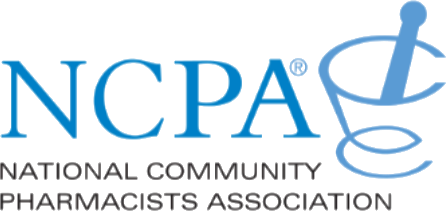Drug Supply Chain Security Act (DSCSA) Resources for Dispensers.

What is The DSCSA?
The DSCSA, enacted in 2013, preempts a 50-state patchwork of pedigree requirements to create one federal traceability framework for prescription medicines. The DSCSA sets out a 10-year timeline to build an electronic, interoperable system for the exchange of transaction documentation [transaction information (TI), transaction history (TH) and transaction statements (TS)] to enable the tracing of prescription medicines, serialized at both the case and the smallest unit of sale, throughout the pharmaceutical supply chain.
On October 9, 2024, FDA adopted a phased approach for compliance with the final enhanced requirements of the DSCSA (known as enhanced package-level requirements in the § 582(g)(1) of the FD&C Act). The manufacturer exemption expired earlier this year, while the wholesale drug distributor exemption expired on August 27, 2025. The dispenser exemption will expire on November 27, 2025. While the FDA-issued exemptions were available throughout 2025, the agency does not view these exemptions as an opportunity for trading partners to delay implementation efforts. Once the exemptions expire, FDA may take steps to enforce the final enhanced requirements across the supply chain.

DSCSA defines a dispenser as:
- A retail pharmacy;
- A hospital pharmacy;
- A group of chain pharmacies under common ownership and control that do not act as a wholesale distributor; or
- Any other person authorized by law to dispense or administer prescription drugs and the affiliated warehouses or distribution centers of such entities under common ownership and control that do not act as a wholesale distributor
Overview of DSCSA Milestones
2015
Lot-level traceability
Manufacturers and wholesale distributors must provide lot TI, TH and TS.
2017
Product identifiers by manufacturers
Manufacturers must affix product identifiers to each package and homogenous case.
2018
Product identifiers by repackagers
Repackagers must affix product identifiers to each package and homogenous case.
2019
Verification by distributors
Wholesale distributors must only accept serialized product. They must also verify product identifiers with the manufacturer before redistributing returns. However, FDA has announced, by way of a “compliance policy” that it will not enforce this saleable returns verification requirement until November 27, 2023. The compliance policy is limited to the requirements that wholesale distributors verify saleable returned products prior to further distribution and have verification systems in place to comply with the requirements of section 582(c)(4)(D) of the FD&C Act; it does not extend to the other requirements in section 582 of the FD&C Act.
2020
Verification by dispensers
FDA has announced in this compliance policy that it will not enforce until November 27, 2023, two dispenser verification requirements that went into effect on November 27, 2020. Without this enforcement discretion, beginning November 27, 2020, dispensers would have been required to verify the product identifier, including the standardized numerical identifier, of at least 3 packages or 10 percent of such suspect product, whichever is greater, or all packages, if there are fewer than 3. Dispensers would also have had to verify product in this manner (3 packages/10 percent) in response to a notification of illegitimate product from FDA or a trading partner. Dispensers now do not have to verify suspect and illegitimate product in this manner until November 27, 2023. Other requirements, however, are still in effect. Dispensers must still only transact product encoded with a product identifier (unless the product is grandfathered or subject to an applicable waiver, exemption or exception) and must comply with other suspect and illegitimate verification requirements, including quarantining such products, conducting investigations, and dispositioning illegitimate products.
2023
Unit-level traceability
Manufacturers, distributors and dispensers must provide and receive TI (including product identifier) and TS in a secure, electronic and interoperable manner.
2023-2024
Stabilization Period
In August 2023, FDA announced a 1-year “stabilization period” for the industry to accommodate additional time for trading partners to adhere to DSCSA requirements.
2024 - 2025
Phased Exemptions
In June 2024, the FDA announced exemptions from certain requirements of section 582 FD&C Act to small dispensers, and where applicable, their trading partners, until November 27, 2026.
Further, on October 9, 2024, following the expiration of the above-mentioned stabilization period, the FDA announced phased for “eligible trading partners” from the DSCSA enhanced drug distribution security requirements of section 582 of the FD&C Act. This exemption applies to any product transacted by eligible trading partners, which are trading partners who have successfully completed or made documented efforts to complete data connections with their immediate trading partners but still face challenges exchanging data.
The duration of the exemption applies to each sector as follows:
- Manufacturers and Repackagers: May 27, 2025
- Wholesale Distributors: August 27, 2025
- Dispensers with 26 or more full-time employees: November 27, 2025
Note that small business dispensers were already provided an exemption by FDA in June through November 27, 2026.
2025 +
Enhanced drug distribution security requirements
Once the above exemptions expire throughout 2025, manufacturers, distributors and dispensers must provide and receive TI (including product identifier) and TS in a secure, electronic and interoperable manner.






